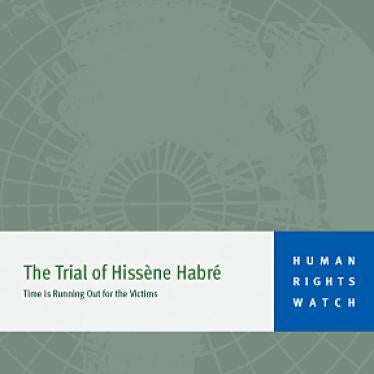(New York)- United Nations Security Council leaders meeting today to discuss peace and security in Africa should not leave justice off the agenda, Human Rights Watch said. French President Nicolas Sarkozy is chairing the meeting this afternoon in New York.
“Justice is an indispensable part of lasting peace and security,” said Richard Dicker, International Justice director at Human Rights Watch. “As Security Council leaders grapple with these difficult issues, they must reinforce the need for justice as a key component of long-term stability.”
Experience has shown that failure to hold perpetrators of the most serious international crimes to account is destabilizing and undercuts long-term prospects for peace, Human Rights Watch said. Time and again, impunity for grave crimes has resulted in outbreaks of violence from groups whose grievances have never been addressed. In Burundi, for example, the Hutu who received no justice for the mass slaughter by Tutsi in 1972 joined all the more readily in attacking Tutsi in 1993. In Sierra Leone, the amnesty granted under the 1999 Lomé Peace Accord was followed by further war crimes, including rampant sexual assault.
“Accountability must not be left off the agenda during the Security Council talks,” said Dicker. “Ending impunity for war crimes and crimes against humanity is crucial to building the rule of law and avoiding cycles of violence. It also sends the message to would-be perpetrators that no one is above the law.”
International law requires accountability for the most serious crimes. The Convention Against Torture, the Geneva Conventions, and the Rome Statute of the International Criminal Court (ICC) require fair prosecutions for crimes against humanity and war crimes.
Several important justice initiatives in Africa require sustained support by the international community. These include the International Criminal Tribunal for Rwanda, the Special Court for Sierra Leone, efforts to bring former Chadian President Hissène Habré to justice, and domestic accountability efforts in the Democratic Republic of the Congo and elsewhere.
The ICC is conducting investigations into situations in four African countries: Uganda, the Democratic Republic of the Congo, Darfur in Sudan, and the Central African Republic. All of these countries except Sudan referred situations on their territory to the ICC prosecutor themselves because of difficulties they had in holding perpetrators to account nationally. In March 2005, the Security Council, in resolution 1593, referred the situation in Darfur to the ICC prosecutor and imposed an obligation on Sudan to cooperate fully with the court’s investigations. The ICC has outstanding arrest warrants issued for suspects in Uganda and Darfur, and is continuing investigations in the Democratic Republic of the Congo.
“As a part of underscoring their broad commitment to justice, Security Council members need to support the ICC’s efforts in Africa,” said Dicker. “They also must ensure that countries like Sudan cooperate with the court.”






